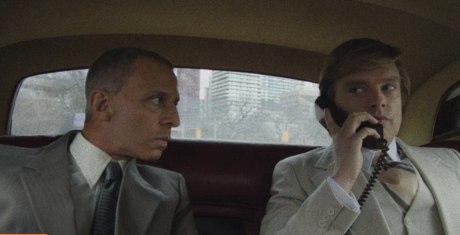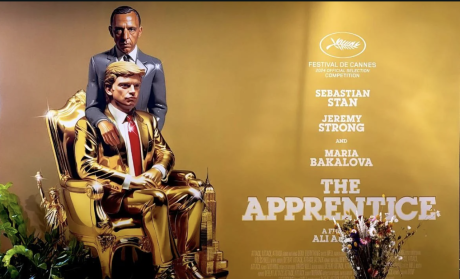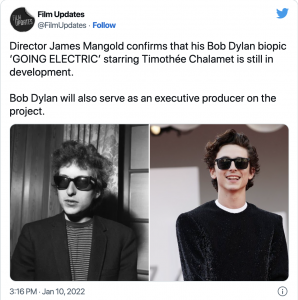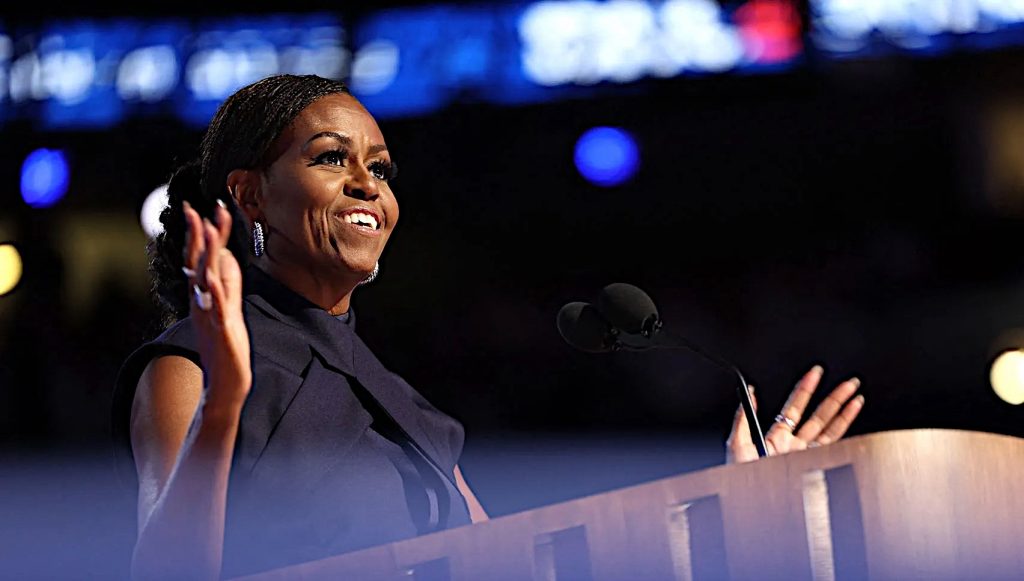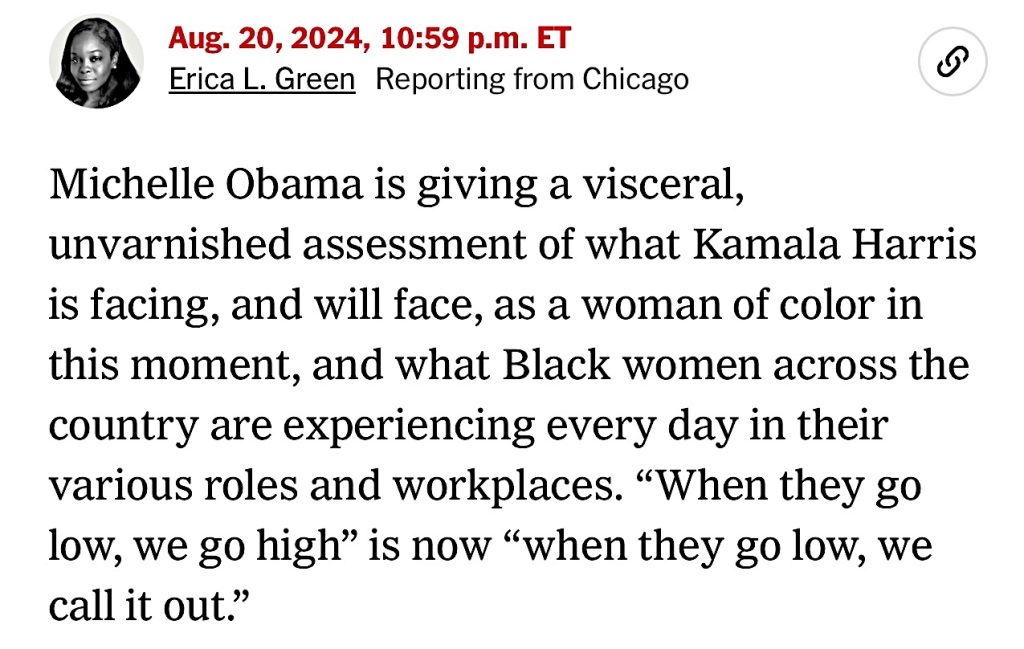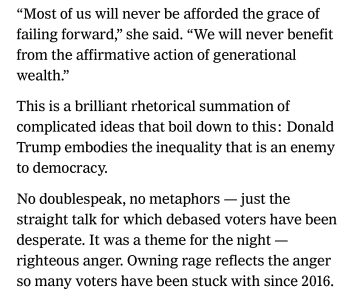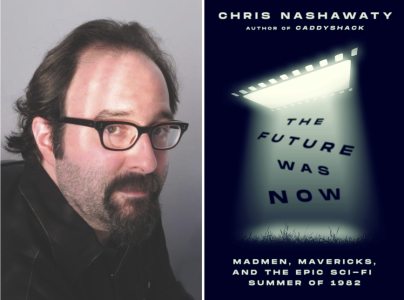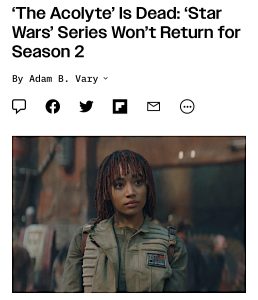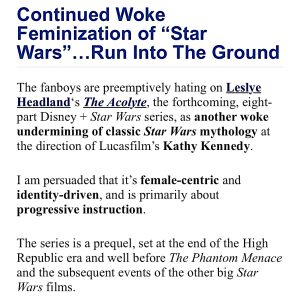Vulture‘s Bilge Ebiri reported something wowser earlier today. And then Variety‘s Katcy Stephan verified and added her two cents.
Having done due research, both stated that in order to demonstrate that critics can’t be trusted when it comes to audacious films by Megalopolis helmer Francis Coppola, Lionsgate’s new Megalopolis trailer uses invented pan quotes from an array of 20th Century critics, citing review excerpts that trash The Godfather, Apocalypse Now and Bram Stoker’s Dracula.
Stephan: “In quotes attributed to their reviews of The Godfather, the trailer cites The New Yorker’s Pauline Kael as calling it “diminished by its artsiness,” and The Village Voice’s Andrew Sarris calling it a “sloppy, self-indulgent movie.”
“Other quotes from critics such as Roger Ebert, John Simon, Stanley Kauffmann, Vincent Canby and Rex Reed similarly flash across the screen, offering harsh critiques of Coppola’s work on masterpieces such as Apocalypse Now.”
A purported review of Coppola’s Dracula by Entertainment Weekly‘s Owen Gleiberman is also fake-quoted (“A beautiful mess”).
My only quibble is that both stories rest upon sober, straight-fact reporting, and so Stephan’s attempt to end her story with sardonic humor doesn’t work. Her final paragraph states that “Lionsgate did not immediately respond to Variety‘s request for comment,” and that “Reed, who still reviews for the Observer, also did not respond to a request for comment.” She concludes by writing that “Kael, Simon, Ebert, Canby, Kauffmann and Sarris are dead, which makes it hard to get their reaction.” Hard but not altogether impossible?
The final line should have read “no reactions, of course, from the departed-for-heavenly-pastures Kael, Simon, Ebert, Canby, Kauffmann and Sarris, none of whom were ever at a loss for words while living.”
Lionsgate has zotzed the inaccurate Megalopolis trailer in question…yanked, gone.
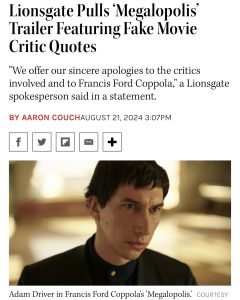
Actual excerpt of real-deal, highly positive Kael review of The Godfather, dated 3.10.72: “If ever there was a great example of how the best popular movies come out of a merger of commerce and art, The Godfather is it.
“The movie starts from a trash novel that is generally considered gripping and compulsively readable, though (maybe because movies more than satisfy my appetite for trash) I found it unreadable. You’re told who and what the characters are in a few pungent, punchy sentences, and that’s all they are. You’re briefed on their backgrounds and sex lives in a flashy anecdote or two, and the author moves on, from nugget to nugget.
“Mario Puzo has a reputation as a good writer, so his potboiler was treated as if it were special, and not in the Irving Wallace-Harold Robbins class, to which, by its itch and hype and juicy roman-a-clef treatment, it plainly belongs. The novel ‘The Godfather,’ financed by Paramount during its writing, features a Sinatra stereotype, and sex and slaughter, and little gobbets of trouble and heartbreak. It’s gripping, maybe, in the same sense that Spiro Agnew’s speeches were a few years back.
“Francis Ford Coppola, who directed the film, and wrote the script with Puzo, has stayed very close to the book’s greased-lightning sensationalism and and yet has made a movie with the spaciousness and strength that popular novels such as Dickens’ used to have. With the slop and sex reduced and the whoremongering guess-who material minimized, the movie bears little relationship to other adaptations of books of this kind, such as The Carpetbaggers and ]The Adventurers.
“Puzo provided what Coppola needed: a storyteller’s outpouring of incidents and details to choose from, the folklore behind the headlines, heat and immediacy, the richly familiar. And Puzo’s shameless turn-on probably left Coppola looser than if he had been dealing with a better book; he could not have been cramped by worries about how best to convey its style.
“Puzo, who admits he was out to make money, wrote ‘below my gifts,’ as he puts it, and one must agree. Coppola uses his gifts to reverse the process—to give the public the best a moviemaker can do with this very raw material. Coppola, a young director who has never had a big hit, may have done the movie for money, as he claims—in order to make the pictures he really wants to make, he says—but this picture was made at peak capacity. He has salvaged Puzo’s energy and lent the narrative dignity.
“Given the circumstances and the rush to complete the film and bring it to market, Coppola has not only done his best but pushed himself farther than he may realize. The movie is on the heroic scale of earlier pictures on broad themes, such as On the Waterfront, From Here to Eternity and The Nun’s Story. It offers a wide, startlingly vivid view of a Mafia dynasty. The abundance is from the book; the quality of feeling is Coppola’s.”


